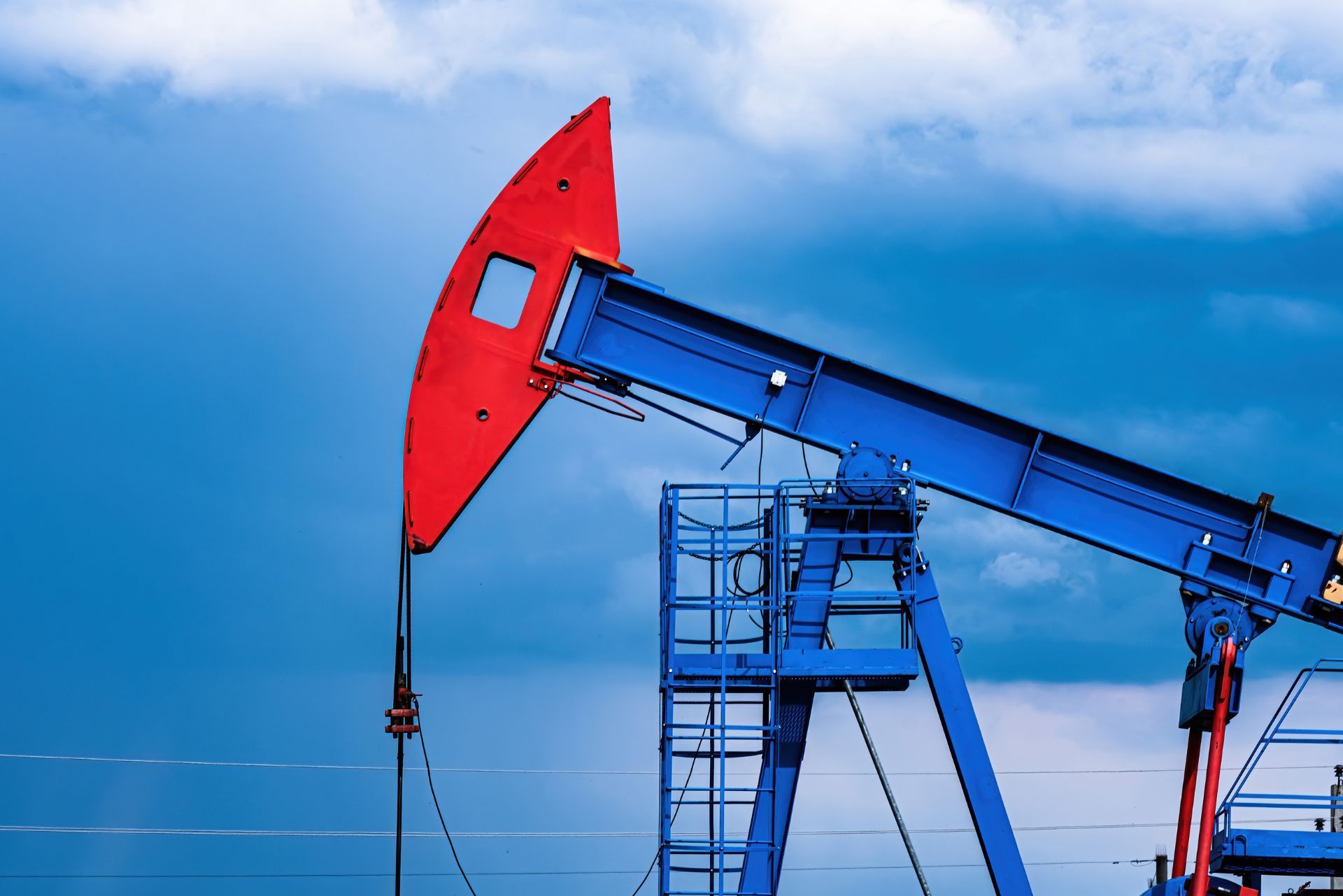Political Risk Liability Insurance For Oil, Gas, and Energy Businesses

or call us: (281) 823-8262
Top 3 Recommended Policies

In today’s complex global landscape, oil, gas, and energy companies face unprecedented challenges. From geopolitical tensions and regional conflicts to shifting regulatory frameworks and climate-related pressures, the risks are multifaceted and evolving rapidly. One critical tool that businesses in these sectors increasingly rely on is political risk liability insurance. This specialized coverage helps safeguard investments and operations against losses stemming from political instability, regulatory changes, and other unpredictable government actions.
With global upstream exploration and production capital expenditure expected to reach $2 trillion in 2023, including $565 billion dedicated to upstream oil and gas alone, the stakes have never been higher for energy companies to protect their assets and ensure operational continuity. Understanding political risk insurance, its benefits, and how it fits into the broader risk management strategy is essential for decision-makers navigating this volatile environment. This article unpacks everything you need to know about political risk liability insurance in the energy sector.
Understanding Political Risk Liability Insurance
Political risk liability insurance is designed to cover losses that arise from political events beyond a company's control. These events may include expropriation, nationalization, currency inconvertibility, political violence, breach of contract by governments, and other forms of political interference that can disrupt operations or lead to financial loss.
For oil, gas, and energy businesses, which often operate in politically sensitive regions or emerging markets, such risks are particularly acute. Infrastructure projects, exploration activities, and long-term contracts can be jeopardized by sudden changes in government policy, sanctions, or conflicts. Political risk insurance helps mitigate these uncertainties by providing financial protection and enabling companies to pursue growth opportunities with greater confidence.
Given the rising geopolitical tensions worldwide, including the significant impact of the war in Ukraine—the most consequential since the Cold War—energy companies must carefully evaluate their exposure to political risks. According to the EY Global Insurance Industry Trends, these tensions have reshaped risk perceptions and insurance market dynamics, underscoring the importance of comprehensive coverage.
Key Components of Political Risk Insurance
Typical political risk policies cover a range of scenarios, including:
- Expropriation and Nationalization: Protection against government seizure or forced takeover of assets.
- Political Violence: Coverage for damages resulting from war, terrorism, riots, or civil unrest.
- Currency Inconvertibility and Transfer Restrictions: Safeguarding against the inability to convert or transfer foreign currency earnings.
- Breach of Contract: Protection when a government or state-owned entity fails to honor contractual obligations.
Understanding these components helps energy companies tailor their insurance programs to the specific risks they face in different jurisdictions. Additionally, the underwriting process for political risk insurance often involves a thorough analysis of the political landscape, including the stability of the government, historical patterns of political violence, and the legal framework governing foreign investments. Insurers may also assess the economic conditions and social dynamics of the region, which can provide insights into potential future risks.
Moreover, the role of political risk insurance extends beyond mere
financial protection; it can also enhance a company's reputation and credibility in the eyes of investors and stakeholders. By demonstrating a proactive approach to risk management, companies can attract investment and foster partnerships, particularly in regions where political stability is uncertain. This strategic advantage can be crucial in securing funding for large-scale projects, as investors are often more willing to commit resources when they see that a company has taken steps to mitigate potential losses associated with political upheaval.

Why Political Risk Insurance Is Crucial for Energy Businesses
The energy sector is uniquely vulnerable to political risks due to its capital-intensive nature and often complex geopolitical environment. Conflicts and instability can disrupt supply chains, damage infrastructure, and create regulatory uncertainties that threaten profitability and project viability.
Recent studies highlight that conflicts now occur nearly twice as frequently as they did in 2005, significantly impacting energy infrastructure and supply chains. This heightened instability directly translates into increased risk exposure for energy companies operating internationally. Marsh’s Political Risk Report 2025 emphasizes how these evolving risks necessitate robust risk management strategies, including political risk insurance.
Furthermore, the ongoing crisis in the Middle East, cooperation among some of the most sanctioned states, and global competition for critical minerals are creating additional challenges. These factors contribute to market volatility and regulatory complexity, making political risk insurance an indispensable part of an energy company’s risk portfolio. The potential for abrupt changes in government policies, especially in resource-rich regions, can lead to sudden expropriation or nationalization of assets, further amplifying the need for protective measures.
Mitigating Tariff and Trade Uncertainties
Trade tensions and tariff uncertainties have become prominent concerns for multinational energy firms. According to Howden's 2025 survey, demand for political risk insurance is expected to rise by 33% as companies seek protection against unpredictable tariff changes and trade disruptions. This trend reflects the need for coverage that can absorb shocks from sudden policy shifts affecting cross-border transactions and investments.
Ben Knowles, Chair of Clyde & Co’s Global Arbitration Group, notes that the world is transitioning from a globalized economic model to a more regionalized one, which introduces structural challenges for cross-border insurance arrangements and policy alignment. This shift further underscores the importance of political risk insurance tailored to evolving geopolitical realities. Additionally, as energy companies expand their operations into emerging markets, they must navigate a labyrinth of local regulations and political landscapes that can vary dramatically from one country to another. The complexities of these environments necessitate a proactive approach to risk management, ensuring that companies are not only prepared for current challenges but also adaptable to future uncertainties.
Moreover, the rise of renewable energy sources adds another layer of complexity to the political risk landscape. Governments are increasingly incentivizing green energy projects, but these policies can be subject to rapid changes based on political shifts. For instance, subsidies for solar or wind projects may be introduced or withdrawn with little notice, impacting the financial viability of these initiatives. Political risk insurance can provide a safety net against such fluctuations, ensuring that energy businesses can continue to invest in sustainable technologies without the fear of unexpected financial losses due to policy changes.
Political risk insurance should not be viewed in isolation but as part of a comprehensive risk management framework. Energy companies are increasingly adopting proactive strategies to mitigate not only political risks but also climate-related and operational risks. This holistic approach allows firms to create a robust safety net that can adapt to the dynamic landscape of the energy sector, where fluctuations in political stability and environmental regulations can significantly impact operations and profitability.
Scott Shapiro, US Sector Leader for Insurance at KPMG, highlights that energy firms are investing heavily in renewable energy, carbon capture technologies, and resilient infrastructure to address climate risks. These investments complement political risk insurance by reducing vulnerability to regulatory changes linked to environmental policies and enhancing operational resilience. For instance, the shift towards renewable energy not only aligns with global sustainability goals but also positions companies favorably in the eyes of regulators and investors, thereby minimizing the likelihood of adverse political actions that could disrupt operations.
Moreover, with global upstream capital expenditure reaching $2 trillion in 2023, energy companies must balance growth ambitions with risk mitigation. Political risk insurance enables them to secure financing and partnerships by demonstrating risk awareness and preparedness to investors and stakeholders. This financial backing is crucial, especially in regions where political instability is prevalent, as it reassures investors that their capital is protected against unforeseen governmental actions or civil unrest.
Strategic Benefits of Political Risk Insurance
- Financial Protection: Shields companies from substantial losses due to political events.
- Facilitates Investment: Enhances confidence among lenders and investors by reducing perceived risks.
- Supports Contractual Stability: Provides recourse when governments breach contracts or impose unfavorable regulations.
- Enables Market Expansion: Encourages entry into emerging markets by mitigating political uncertainties.
By integrating political risk insurance with other risk management tools, energy companies can navigate geopolitical challenges more effectively and sustain long-term growth. This integration not only fortifies their operational strategies but also fosters a culture of risk awareness throughout the organization. As energy markets continue to evolve, the ability to adapt to changing political climates and regulatory frameworks will be paramount. Companies that prioritize comprehensive risk management strategies, including political risk insurance, will be better positioned to capitalize on new opportunities while safeguarding their investments against potential setbacks.
Furthermore, the role of technology in enhancing risk management cannot be overlooked. Advanced analytics and data-driven decision-making tools are increasingly being utilized to assess and predict political risks more accurately. By leveraging these technologies, energy firms can identify emerging threats and trends, allowing them to adjust their strategies proactively. This proactive stance not only enhances their resilience but also contributes to a more sustainable operational model that aligns with global efforts to combat climate change and promote energy security.
Current Trends and Future Outlook in Political Risk Insurance
The political risk insurance market is evolving in response to rising geopolitical tensions and shifting global dynamics. According to Clyde & Co’s Corporate Risk Radar report, 58% of senior executives identify geopolitical tensions as a key business risk, while global insurance mergers and acquisitions have dropped to a 15-year low. This environment signals cautiousness and a heightened focus on risk mitigation.
Energy companies are responding by increasing their demand for political risk coverage and seeking policies that address emerging risks such as cyber threats, sanctions compliance, and climate-related regulatory changes. The insurance industry itself is adapting by developing more sophisticated products and offering tailored solutions for complex energy projects. As companies expand their operations into politically unstable regions, they are increasingly aware that traditional insurance models may not adequately cover the unique risks they face. This has led to innovative approaches, including the incorporation of political risk assessments into the underwriting process, ensuring that policies are reflective of the current geopolitical climate.
Looking ahead, the interplay between geopolitical developments, technological innovation, and environmental imperatives will shape the political risk landscape. Companies that proactively manage these risks through comprehensive insurance and strategic planning will be better positioned to capitalize on opportunities and withstand disruptions. The rise of digital transformation in various sectors, including finance and logistics, further complicates the risk landscape, as cyber vulnerabilities can lead to significant financial losses and reputational damage. Insurers are now more than ever focusing on integrating cybersecurity measures into their risk assessments, recognizing that the digital realm is an extension of the physical world where political instability can manifest in new and unpredictable ways.
For more insights into how geopolitical and regulatory risks are reshaping insurance market exposures, see the detailed analysis by Clyde & Co.

Conclusion
Political risk liability insurance has become an essential safeguard for oil, gas, and energy businesses operating in today’s uncertain geopolitical environment. With escalating conflicts, trade uncertainties, and regulatory complexities, this insurance provides critical financial protection and strategic advantages.
As the global energy sector invests heavily in both traditional and renewable sources, managing political risks effectively will be key to sustaining growth and resilience. By understanding the scope and benefits of political risk insurance, energy companies can better navigate the challenges posed by geopolitical instability and position themselves for long-term success.
In an era where conflicts are more frequent and geopolitical tensions more pronounced, integrating political risk insurance into a broader risk management strategy is not just prudent—it is indispensable.
Contact Us
Phone
Location
9595 Six Pines Dr, Suite 8210, The Woodlands, TX 77380
